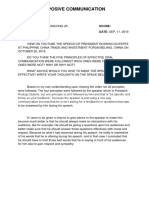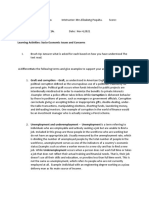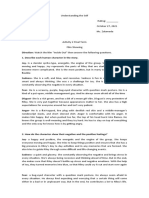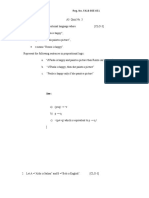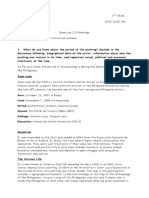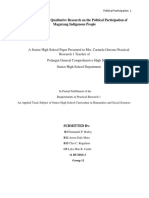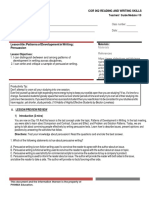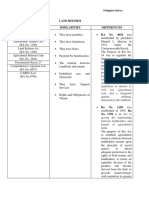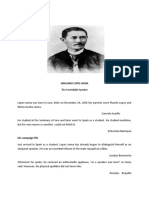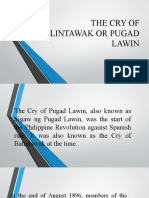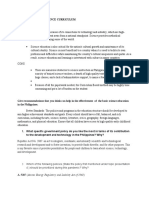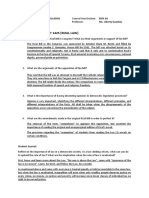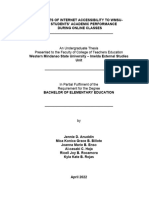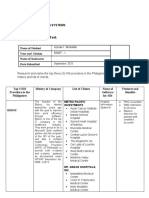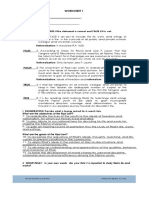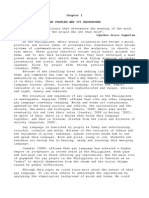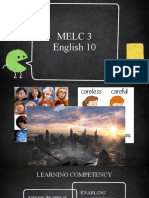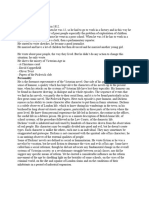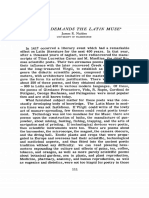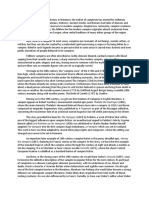0% found this document useful (1 vote)
556 views7 pagesChapter 1
This chapter provides background information and context for the study. It discusses common informal languages used in the Philippines like Jejemon, Gay Lingo, and Conyospeak. It then states the problem, scope, significance, and hypotheses of the study, which aims to determine the relationship between using these informal languages in texting and creating literary pieces using formal language. The study will survey 25 students from GAS301.
Uploaded by
Anonymous Ozsx3L5zCopyright
© © All Rights Reserved
We take content rights seriously. If you suspect this is your content, claim it here.
Available Formats
Download as DOCX, PDF, TXT or read online on Scribd
0% found this document useful (1 vote)
556 views7 pagesChapter 1
This chapter provides background information and context for the study. It discusses common informal languages used in the Philippines like Jejemon, Gay Lingo, and Conyospeak. It then states the problem, scope, significance, and hypotheses of the study, which aims to determine the relationship between using these informal languages in texting and creating literary pieces using formal language. The study will survey 25 students from GAS301.
Uploaded by
Anonymous Ozsx3L5zCopyright
© © All Rights Reserved
We take content rights seriously. If you suspect this is your content, claim it here.
Available Formats
Download as DOCX, PDF, TXT or read online on Scribd
/ 7
